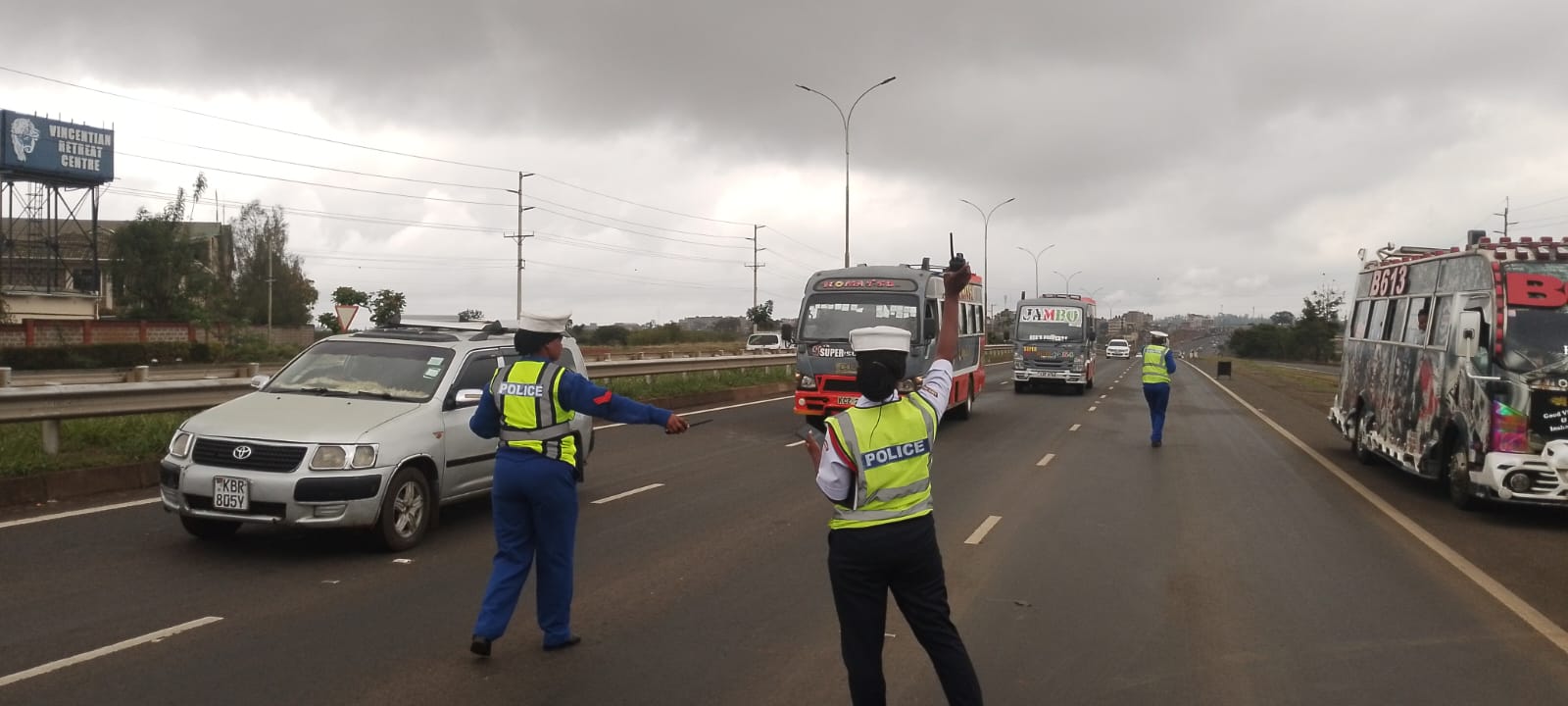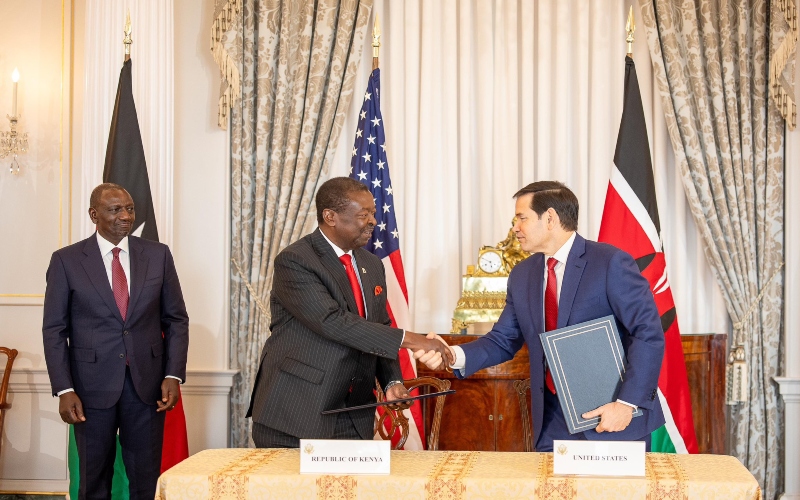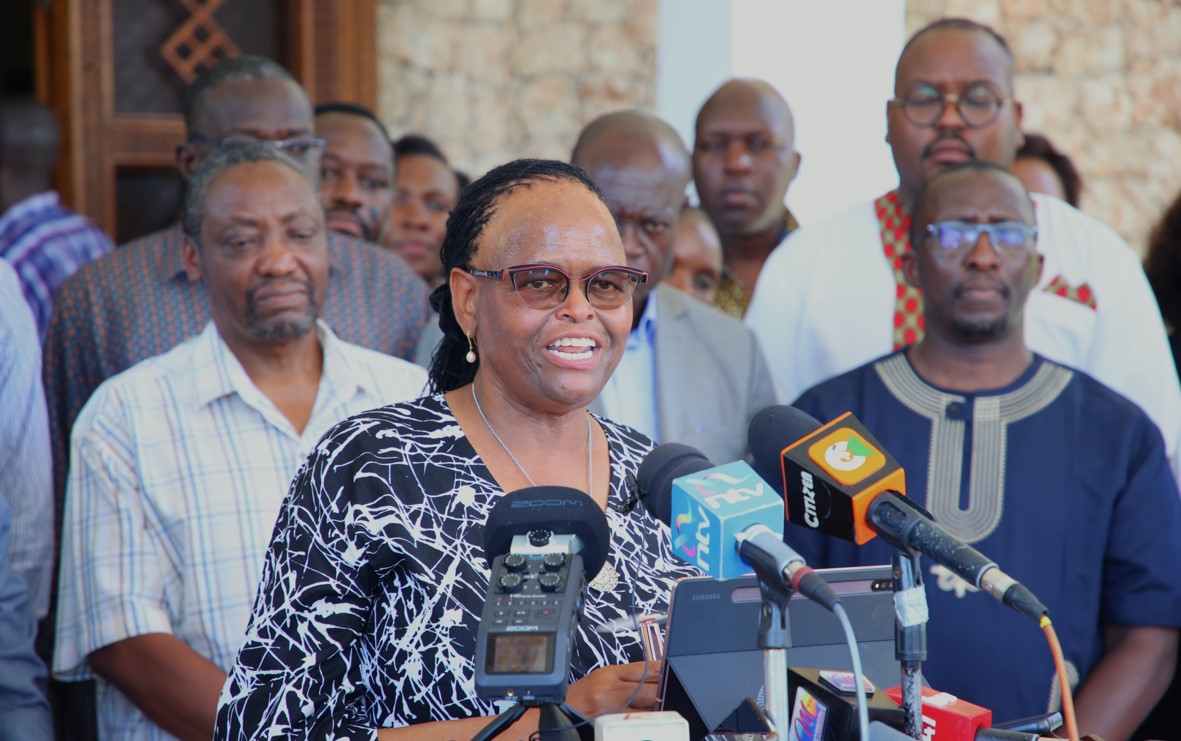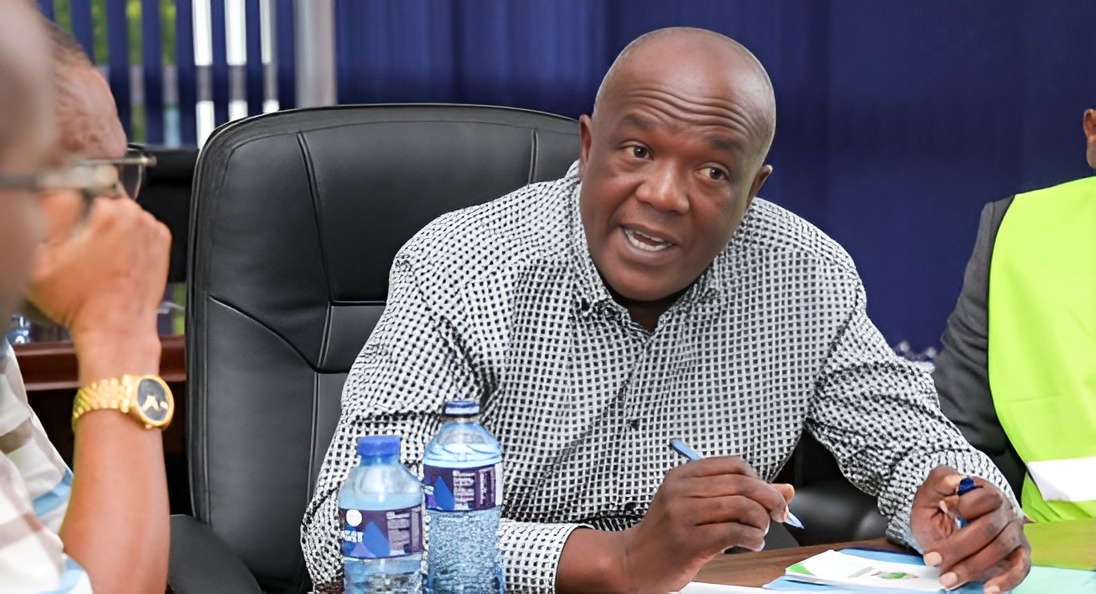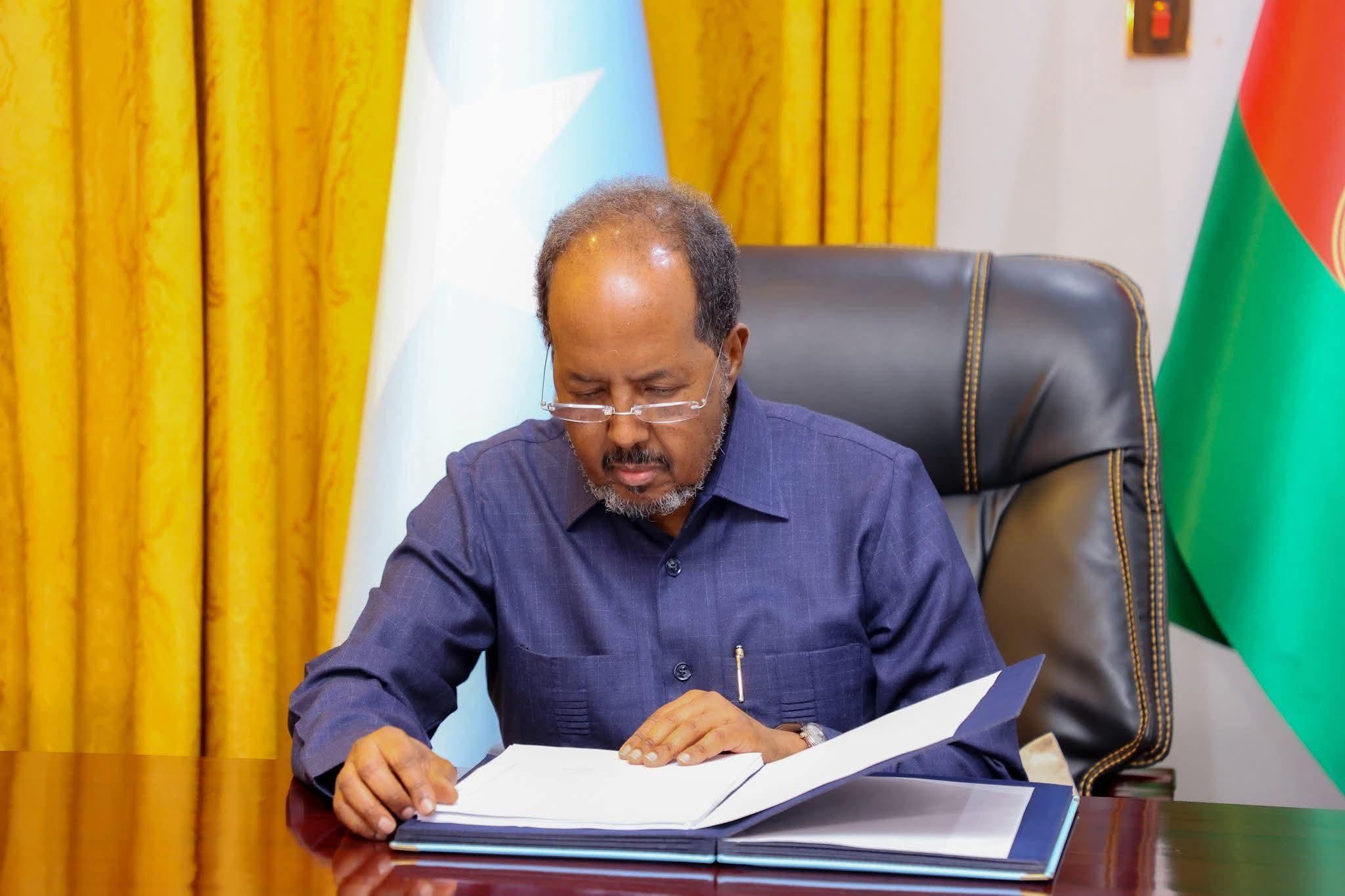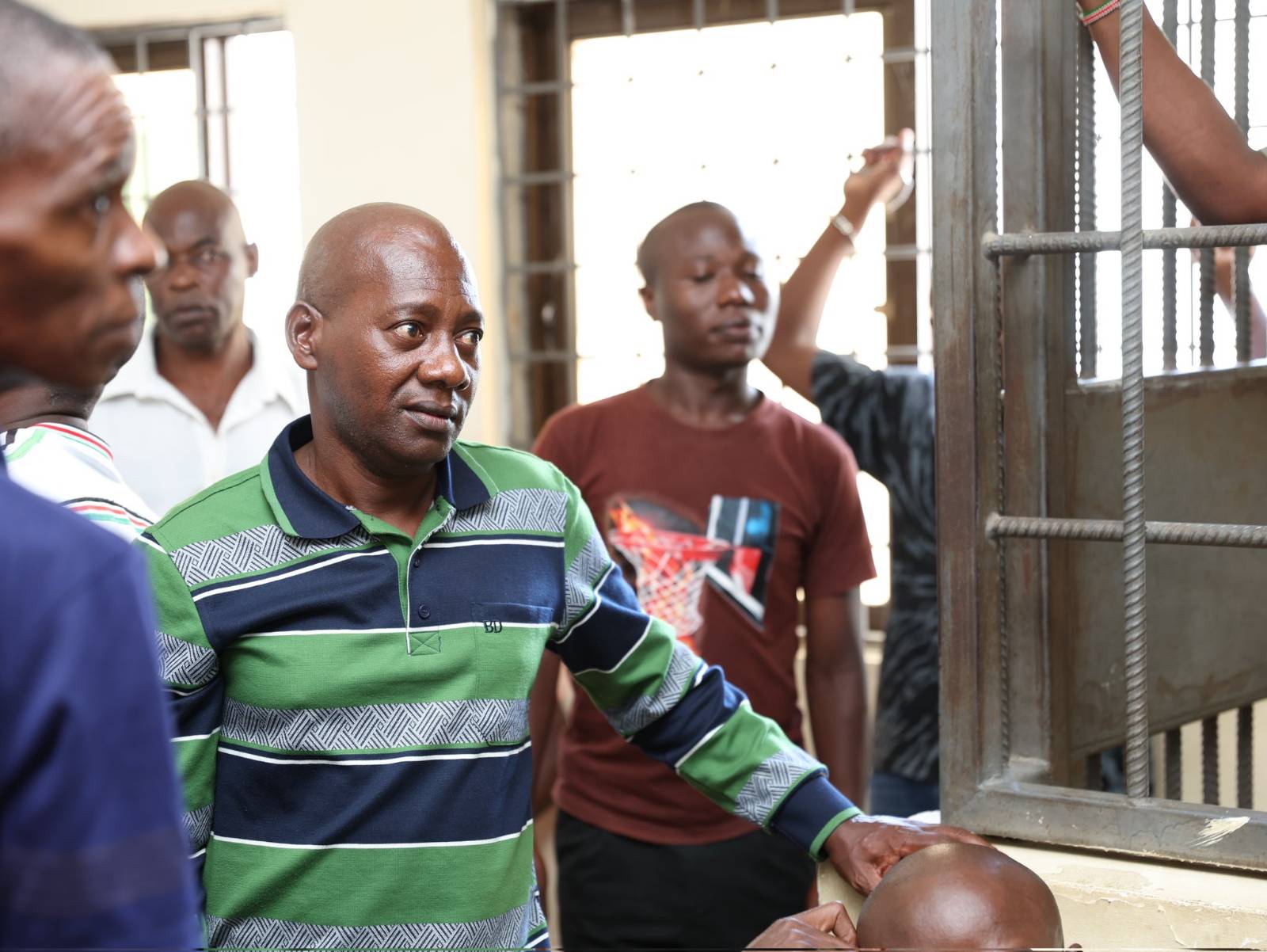Femicide, deaths and protests: Defining moments that shocked Kenyans in 2024

From the disturbing rise in femicide cases to the tragic loss of Chief of Defence Forces Francis Ogolla and the unprecedented invasion of Parliament, these events painted a vivid picture of a nation grappling with social and political challenges.
The year 2024 will be remembered as one of the most turbulent in Kenya’s modern history. A series of tragic and shocking events unfolded throughout the year, leaving the nation in collective grief and reflection.
From the disturbing rise in femicide cases to the tragic loss of Chief of Defence Forces Francis Ogolla and the unprecedented invasion of Parliament, these events painted a vivid picture of a nation grappling with social and political challenges.
More To Read
- Parliament to debate Bill ending private settlements in SGBV cases
- KNCHR raises alarm as over 100 femicide cases recorded in three months
- Man charged with schoolgirl’s murder shocks court, seeks plea deal
- Why a woman is killed every 10 minutes; the rising wave of global femicide
- Gender CS Cheptumo calls for collective action against teenage pregnancies
- Digital platforms fuel sexual exploitation of women in Kenya - report
Death of sitting CDF
On April 18, tragedy struck when a military plane crashed in Sindar, Elgeyo-Marakwet County, claiming the lives of ten military personnel, including Chief of Defence Forces (CDF) General Francis Ogolla.
Two others were injured in the crash, which occurred during a tour to inspect school renovations and visit troops deployed in the North Rift under Operation Maliza Uhalifu.
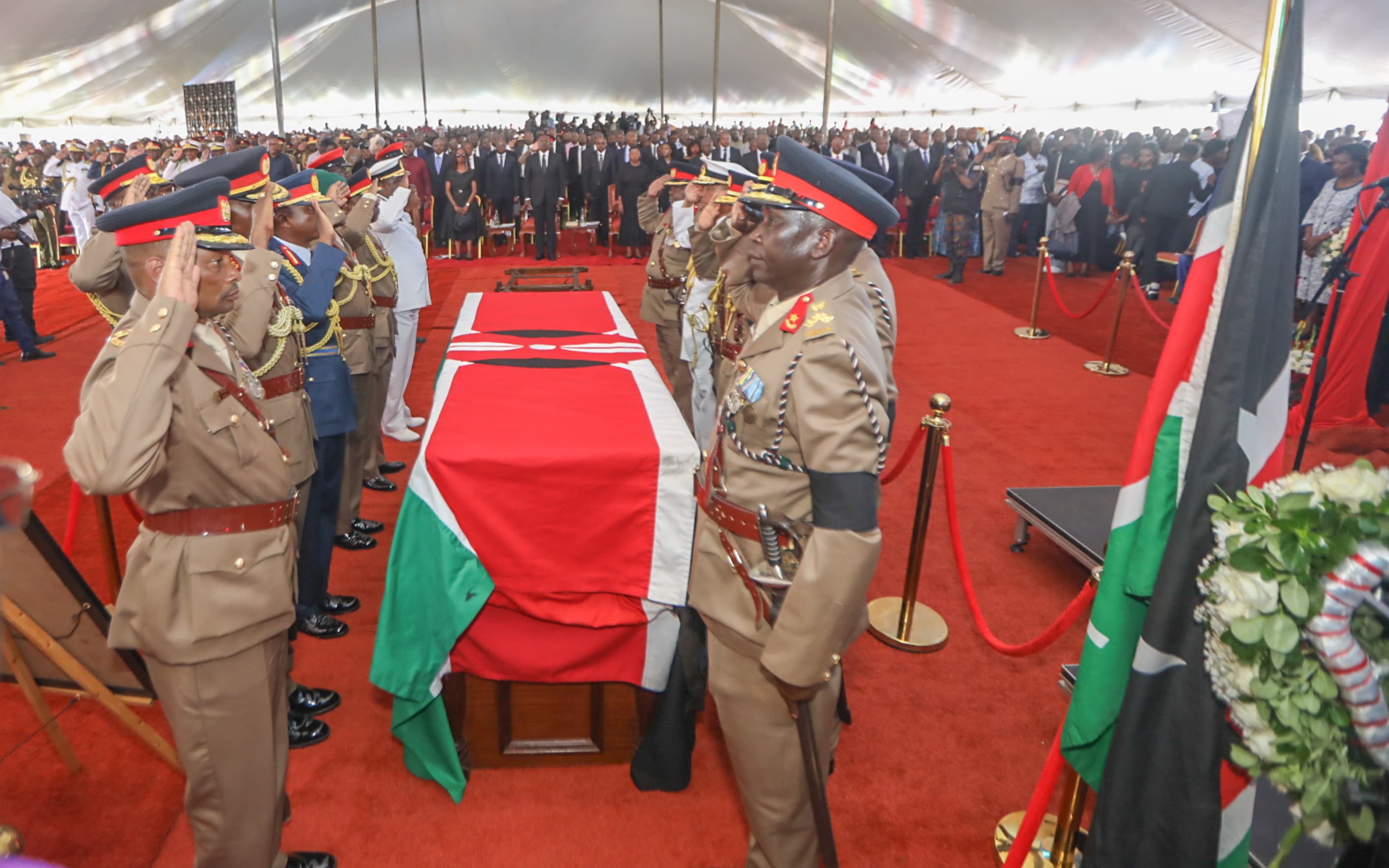 Military officials salute next to the coffin containing Chief of Defence Forces (CDF) Francis Omondi Ogolla's body at the start of his funeral service at the Senator Obama K'Ogello Primary School in Siaya County on April 21, 2024. (Photo: PCS)
Military officials salute next to the coffin containing Chief of Defence Forces (CDF) Francis Omondi Ogolla's body at the start of his funeral service at the Senator Obama K'Ogello Primary School in Siaya County on April 21, 2024. (Photo: PCS)
The news plunged the country into mourning. President Ruto, visibly shaken, addressed the nation that evening, declaring three days of national mourning.
“This is a moment of great sadness for myself, the Kenya Defence Forces fraternity, and the nation at large,” he said.
Describing Ogolla as one of Kenya’s most valiant generals, the President expressed his deep sorrow.
“The demise of General Ogolla is a painful loss to me, and the sorrow we feel is shared by all Kenyans,” Ruto said.
Ogolla’s illustrious career spanned decades, beginning in 1984 when he joined the military. Rising through the ranks, he served as Commander of the Kenya Air Force before becoming Vice CDF and later CDF in April 2023.
During his tenure, he spearheaded critical military operations and humanitarian missions, including efforts to renovate schools in conflict-prone areas.
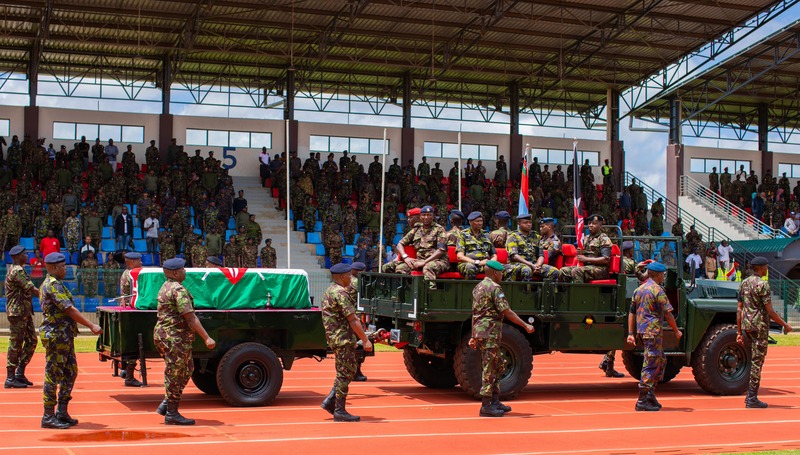 Body of General Francis Ogolla at Ulinzi Sports Complex, Lang'ata. (PCS)
Body of General Francis Ogolla at Ulinzi Sports Complex, Lang'ata. (PCS)
His untimely death made him the shortest-serving Chief of General Staff in Kenya’s history.
The crash also claimed the lives of other distinguished military officers, including Brigadier Swale Saidi, Colonel Duncan Keittany, and Lieutenant Colonel David Sawe.
Parliament Invasion
On June 25, Kenya’s political landscape reached a turning point as Gen Z-led demonstrations erupted across the country, opposing the controversial Finance Bill 2024.
The youth-led protests decried proposed tax increases, sparking mass demonstrations in cities such as Nairobi, Mombasa, and Eldoret. Businesses shut down, and transport was paralysed as police clashed with demonstrators.
In Nairobi, the protests took a violent turn when demonstrators breached Parliament’s barricades.
The national flag was uprooted, and sections of the Parliament building were set ablaze. Reports indicated that police fired live bullets, resulting in fatalities, hundreds of injuries, and numerous arrests.
The chaos caused property damage estimated at Sh94 million, forcing Parliament to proceed on an early recess.
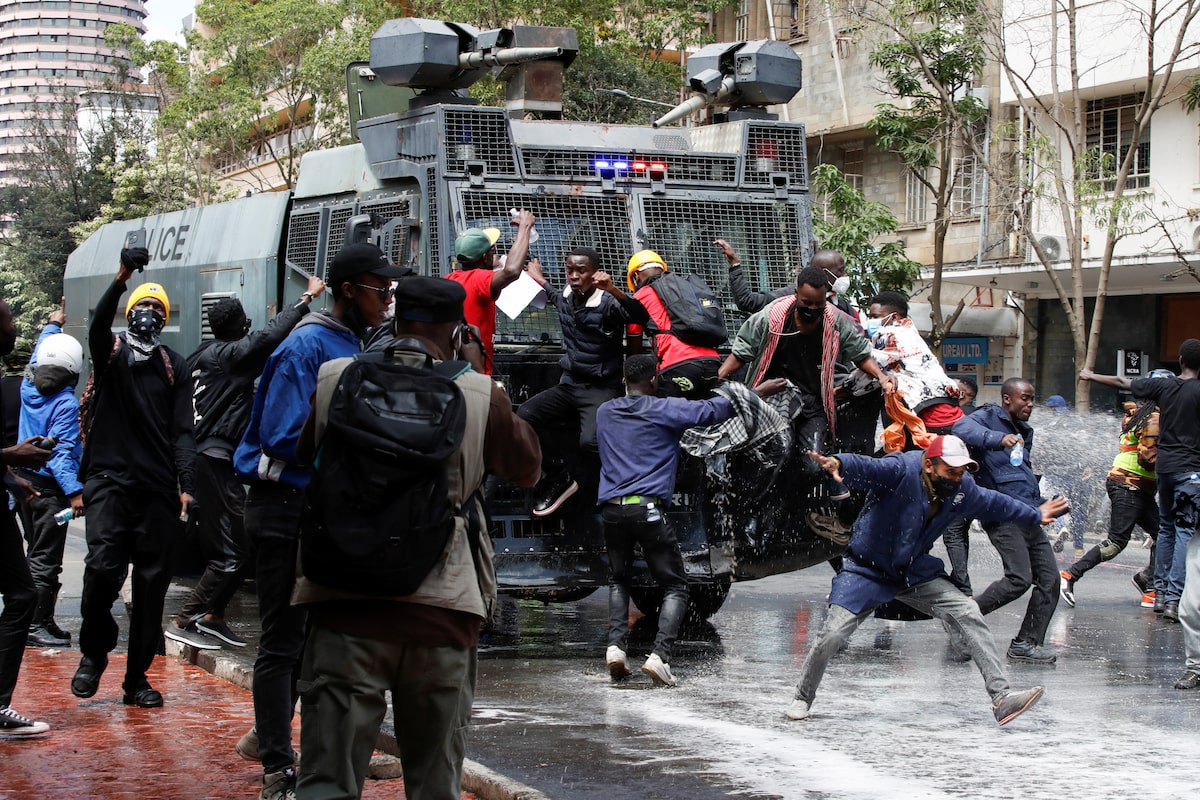 Demonstrators during Kenya’s Gen Z protests against the Finance Bill 2024 in June. (Photo: Handout)
Demonstrators during Kenya’s Gen Z protests against the Finance Bill 2024 in June. (Photo: Handout)
National Assembly Speaker Moses Wetang’ula later confirmed that critical equipment, including those used to facilitate legislative sessions, was destroyed, alongside other valuable items.
“This incident reflects deep frustrations among the youth, but it is also a violation of our democratic institutions,” he remarked.
In his address later that evening, President Ruto termed the events treasonous, accusing the protests of being “hijacked.”
He announced the deployment of military personnel to restore order, declaring, “The planners, financiers, and orchestrators of violence and anarchy are on notice.”
The events demonstrated the growing discontent among Kenyans, particularly the youth, over governance and economic hardships.
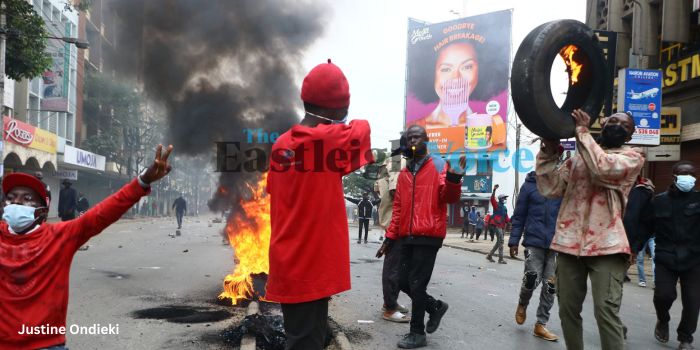 Anti-government protesters congregate near a burning tyre along Tom Mboya Street in Nairobi on Tuesday, July 16, 2024. (Photo: Justine Ondieki/EV)
Anti-government protesters congregate near a burning tyre along Tom Mboya Street in Nairobi on Tuesday, July 16, 2024. (Photo: Justine Ondieki/EV)Anti-government protesters congregate near a burning tyre along Tom Mboya Street in Nairobi on Tuesday, July 16, 2024. (Photo: Justine Ondieki/EV)
Femicide epidemic
The year began on a sombre note, with the shocking deaths of 14 women in January alone.
This triggered nationwide protests against gender-based violence, with an estimated 10,000 women taking to the streets in the largest demonstration of its kind in Kenya’s history.
 Protesters sit at the gate of the Supreme Court on December 10, 2024 with placards bearing names of Kenyans who have lost their lives through femicide. (Photo: Barack Oduor)
Protesters sit at the gate of the Supreme Court on December 10, 2024 with placards bearing names of Kenyans who have lost their lives through femicide. (Photo: Barack Oduor)
The alarming rise in femicide continued, with police reports indicating 97 women were murdered between August and October.
One of the most horrifying incidents occurred in September when Olympic athlete Rebecca Cheptegei was set ablaze by her ex-partner.
Earlier in July, sacks containing the dismembered bodies of women were discovered in Kware, Pipeline Estate, a case linked to a suspected serial killer.
Collins Jumaisi Khalusha confessed to killing 42 women but later escaped from custody, his whereabouts still unknown.
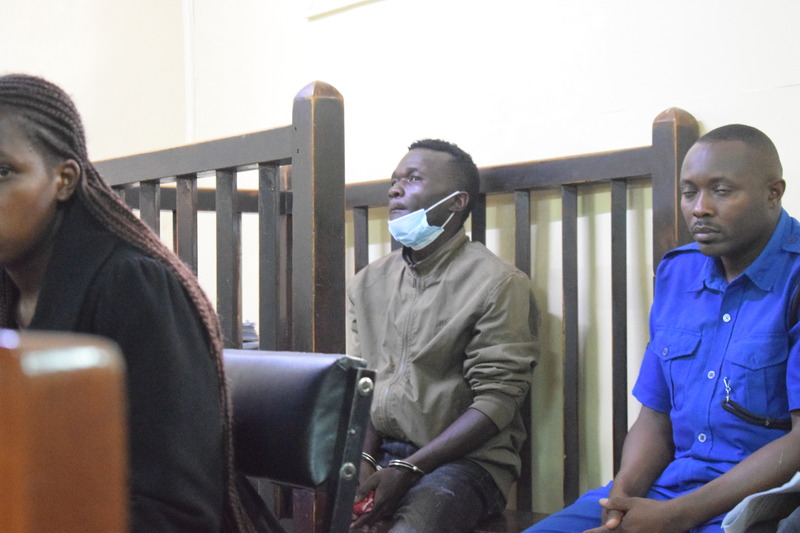 Collins Jumaisi Khalisia, a key suspect in the Kware murders, during a past arraignment at Makadara Law Courts. (Photo: File)
Collins Jumaisi Khalisia, a key suspect in the Kware murders, during a past arraignment at Makadara Law Courts. (Photo: File)
President William Ruto addressed the crisis, calling for collective efforts to tackle the moral and criminal dimensions of the issue.
“It is true we have a big problem. Our young people, especially girls, are being killed arbitrarily. Instead of love, it has turned into killing. How can it be that women, who expect love and protection, are dying at the hands of men?” he said.
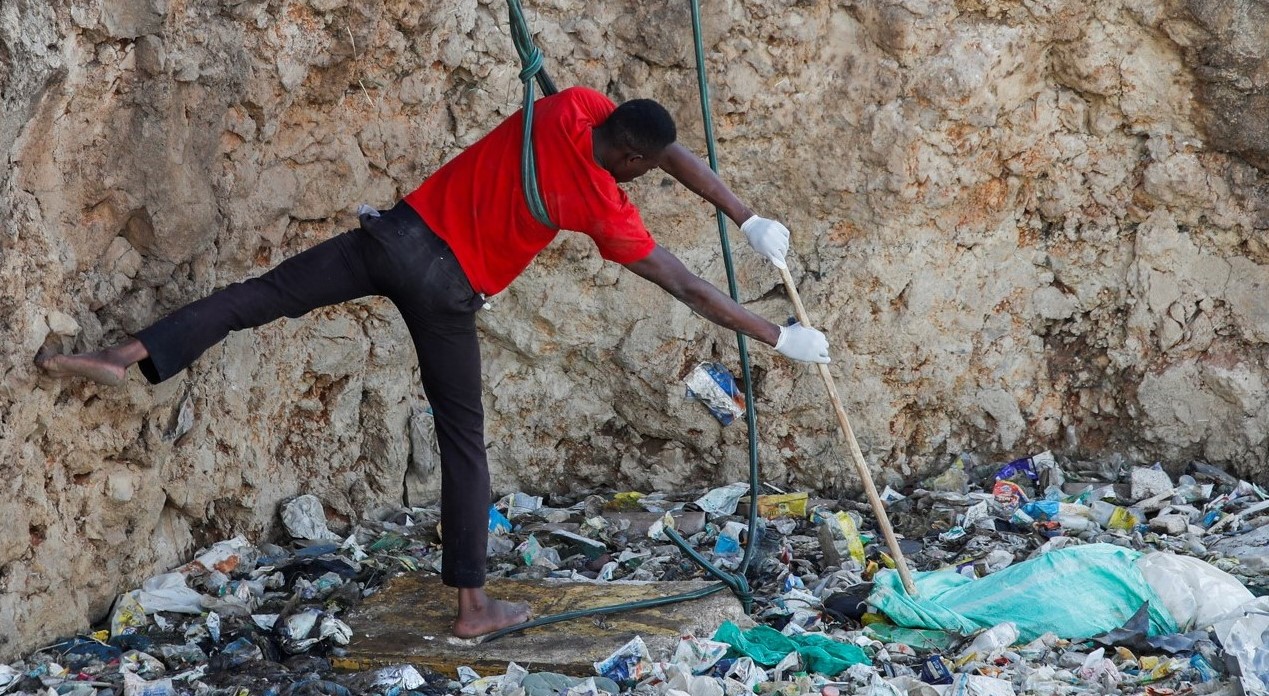 A volunteer retrieves the body of an unknown person from a dumpsite in the Kware estate of Embakasi, Nairobi, July 12, 2024. (Photo: REUTERS/Monicah Mwangi)
A volunteer retrieves the body of an unknown person from a dumpsite in the Kware estate of Embakasi, Nairobi, July 12, 2024. (Photo: REUTERS/Monicah Mwangi)
The outcry culminated in a massive protest on December 9, as thousands, mostly women, marched through Nairobi demanding government action.
Smaller protests were reported in other towns but were met with tear gas and arrests, reflecting the frustrations of a nation seeking justice and change.
Top Stories Today





